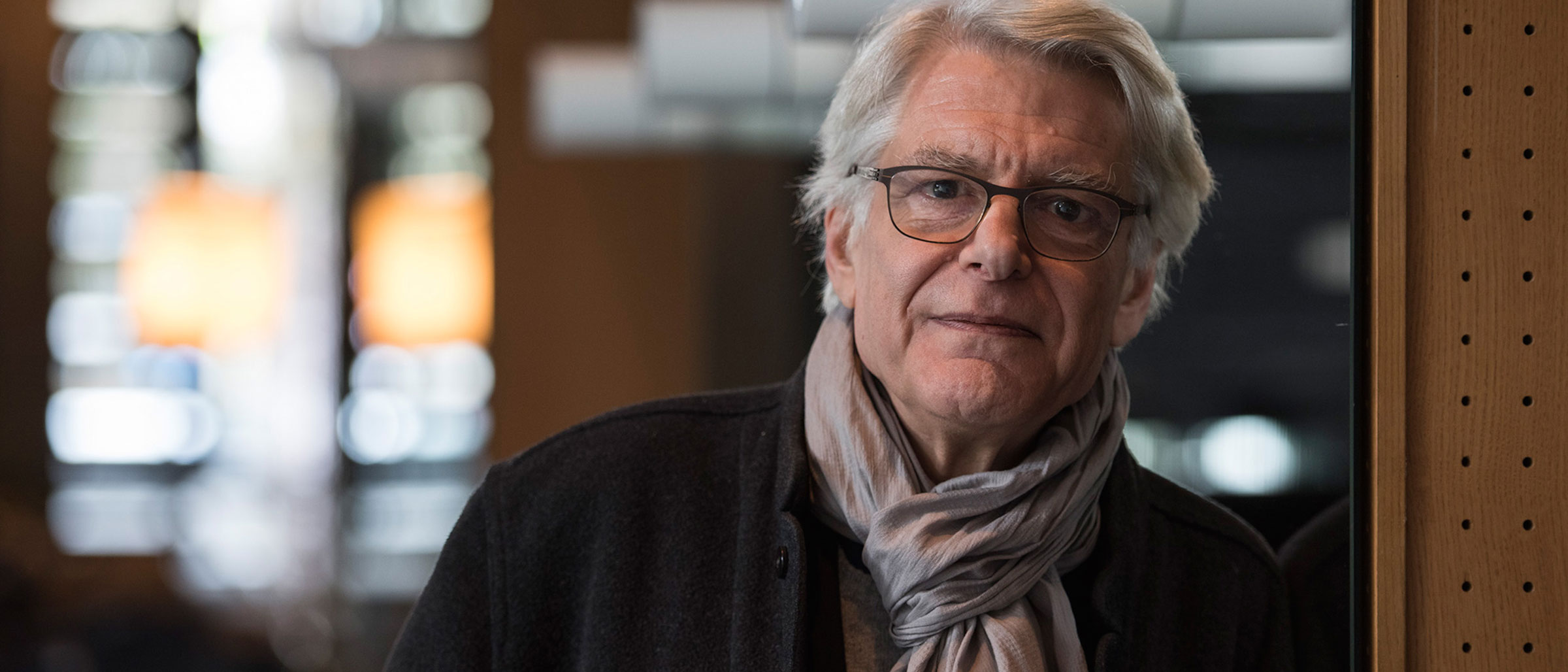
Commission to Georges Aperghis
Kultur Ruhr, Bochum (DE)
In his works, Georges Aperghis succeeds in combining depth with lightness, the universal with the specific, the topical with the archaic, the abstract with the creative, seriousness with play, research with love. With this unique artistic approach and personal devotion, he composes a new music theatre from a very unique and special perspective on the complex phenomenon of the history of the Ruhr region. The commission of Georges Aperghis for the Ruhrtriennale Bochum is made possible by the Ernst von Siemens Music Foundation.
Georges Aperghis decided on a small, light, mobile, changeable, almost chamber-theatrical form in the Gebläsehalle, which promotes a high level of concentration on the largely intimate stage action, virtually developing a pull towards it: A singer and four musicians with their instruments, partly newly built or rebuilt. An animated film plane in black and white emerging from the darkness. Light, mobile stage constructions. Otherwise light and darkness. During the development of the composition, Aperghis turned his attention to the region and its specifics, and the formative mining industry slipped into his view. But in dealing with the mining theme, Aperghis' interest was not in the grotesque size, monstrosity and vastness of the facilities built for coal extraction and processing, but in the quintessentially outrageous strangeness of the process undertaken for this work and its proceeds: People open up the surface of the earth and dig a hole into it, deeper and deeper through layers of earth and rock thousands of years old, many hundreds of metres deep, and now descend themselves in a vertical course along this geo-stratum, which they touch, scrape, remove. The deeper they descend, the further they go into the past, far back into a prehistoric past of which matter tells in its various states of transformation. A matter that, the further one descends, has less and less to do with industries, regions, territories, countries, populations, languages, cultures that have been built upon it. The deeper you go, the further you drift into the universe.
Georges Aperghis takes us on this train of thought in his new music theatre, and immediately it becomes vivid, audible and alive: the absurdity of this descent is accepted as quickly as it is recognised, and it also immediately exerts an irresistible force. The high artificiality of the image that emerges when the worlds on earth and under the earth are juxtaposed is reminiscent of abstract art in its strictness of rules: black below, white above. Men below, women above, down the vertical, up the horizontal. The strict dichotomy upsets the familiar system of orientation: to descend is to ascend, to go into the past is to step into the future.
In this new work, Georges Aperghis, who has worked a great deal on the confrontation between man and machine, turns to elementary themes that consider man in the supra-temporal context of the history of the earth. Materiality is to play an essential role in his music – the nature of different layers of earth and rock in various states of aggregation, their sound in interaction with man. To this end, Aperghis develops new instrumental playing techniques and even new instruments together with the musicians. Overall, the music is strongly characterised by the interplay of extreme tonal contrasts, which reflect the polar setting of his idea. The only human voice used in this composition occupies a changeable position and is not identifiable with a defined figure, a person, an individual. In it, human like bird like collective like matter can be found.
Further information:
ruhrtriennale.com
Dates
August 12, 13, 18, 19 and 20, 2023
Gebläsehalle in the Duisburg-Nord Landschaftspark
